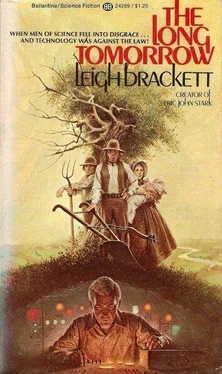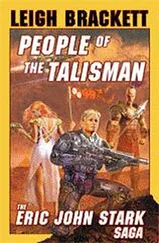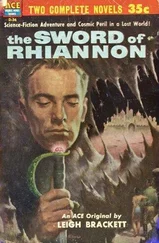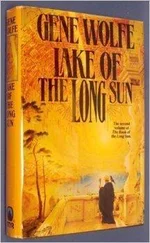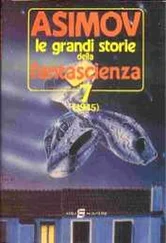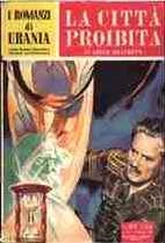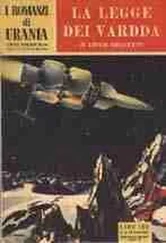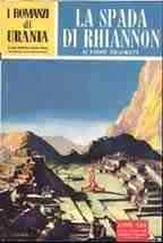“Not with my barge,” said Kovacs. “We’ve got a long way to go in her yet, and I like her bottom in one piece. There must be another way.”
“Let me think,” said Rosen.
There was a long pause while he thought. The men waited around the radio, breathing heavily.
Rather timidly, a voice spoke, saying, “This is Petto again, at Indian Ferry.”
“Okay. What?”
“Well, I was just thinking. The river’s low now, and the channel’s narrow. It ought to be easy to block.”
“Do you have anything in mind?” asked Hostetter.
“There’s a dredge working right off the end of the point,” said Petto. “The men come in at night to the village, so we don’t have to worry about anyone drowning. Now, if you could pass here while it’s still dark, and I could be out by the dredge ready to turn her loose, the river makes a bend right here and the current would swing her on broadside, and I’ll bet nothing but a canoe would get by her till she was towed off again.”
“Petto,” said Sam, “I love you. Did you hear that, Rosen?”
“I heard. Sounds like a solution.”
“It does,” said Kovacs, “but when we get there, lock us through fast, just in case.”
“I’ll be watching,” said Rosen. “So long.”
“All right,” said Sam. “Petto?” They began to talk, arranging signals and timing, discussing the condition of the channel between their present position and Indian Ferry. Kovacs turned and looked at Len and Esau.
“Come on,” he said. “I’ve got a job for you. Know anything about steam engines?”
“A little,” said Len.
“Well, all you have to know about this one is to keep the fire up. We’re in a hurry.”
“Sure,” said Len, glad of something to do. He was tired, but he could stand to be more tired if it would stop his mind from whirling around over old memories and unhappy thoughts, and the picture of Dulinsky’s dying face, which was already becoming confused with the face of Soames. He scrambled up the ladder after Kovacs. In the deckhouse, Amity had apparently fallen asleep, for she made no move when they passed, Esau going on his tiptoes and looking nervously at the blanket curtaining her bunk. For a minute the night air touched them, clean and cool, and then they went down again into the pit where the boiler was. Here there was a smell of hot iron and coal dust, and a very sweaty-looking man with a broad shovel moving between the bin and the fire door. Kovacs said, “Here’s some help, Charlie. We’re going to move.”
Charlie nodded. “Extra shovels over there.” He kicked open the door and began to pile in the coal. Len took his shirt off. Esau started to, but stopped with it half unbuttoned and said, looking at the boiler, “I thought it would be different.”
“What?” said Kovacs.
“Well, the engine. I mean, coming from Bartorstown, you could have any kind of an engine you want, and I thought—”
Kovacs shook his head. “Wood and coal are all the fuel there is. We have to use ’em. Besides, you stop a lot of places along the river, and a lot of people come aboard, and the first thing they want to see is your engine. They’d know in a minute if it was different. And suppose you have a breakdown? What would you do then, send all the way back to Bartorstown for parts?”
“Yeah,” said Esau. “I suppose so.” He was obviously disappointed. Kovacs went away. Esau finished taking his shirt off, got a shovel, and fell in beside Len at the coalbin. They fed the fire while Charlie worked the draft and watched the safety valve. The thump of the piston came faster and faster, churning the paddle wheel, and the barge picked up speed, going away with the current. Finally Charlie motioned them to hold it for a while, and they stopped leaning on their shovels and wiping the sweat off their faces. And Esau said, “I don’t think Bartorstown is going to turn out much like we thought it would.”
“Nothing,” said Len, “ever seems to.”
It seemed like an awfully long time before another man came with word that the race was over and told Len and Esau they could quit. They stumbled up on deck, and Len felt the barge jerk and quiver as the paddles were reversed. It was not the first time that night, and Len thought that Kovacs must either have, or be himself, the devil and all of a pilot.
He leaned against the deckhouse, shivering in the cool air. It was that slack, dark time when the moon has left the sky and the sun hasn’t come yet. The bank was a low black smudge with an edge of mist along it. Ahead it seemed to curve in like a solid wall, as though the river ended there, and in a minute the barge would run head on into it. Len yawned and listened to the frogs. The barge swung, and there was a bend in the river. In the hollow of the bend there was a village, the square shapes of the houses sensed rather than seen. Close by the end of the point a couple of red lights burned, hung apparently in midair.
Up on the foredeck, a lantern was shown and then covered three times in quick succession. From very low down on the water came an answering series of blinks. Because he knew it was there, Len was able to make out a dim canoe with a man in it, and then all at once the huge spectral shape of the dredger seemed to spring at him out of the gloom. It slid by, a skeletal thing like a partly dismantled house set on a flat platform, very massive and weighted with the heavy iron scoop. Then it was behind them, and Len watched the red lights. For a long time they did not seem to move, and then they seemed to shift a little, and then a little more, and then with a ponderous and mighty slowness they swung in a long arc toward the opposite shore and stopped, and the noise came down the river a moment later.
Esau said, “They’ll be lucky if they have her out of there by this time tomorrow.”
Len nodded. He could feel the tension lifting, or perhaps it was only because for the first time in weeks he felt safe himself. The Refuge men could not follow now, and whatever word they might send ahead would be too late to stop them.
“I’m going to turn in,” he said, and went into the deckhouse. Amity still slept behind her curtain. Len picked a bunk as far away from hers as he could get and fell almost instantly asleep. The last thought he had was of Esau being a father, and it didn’t seem right at all, somehow. Then the face of Watts intruded, and a horrible smell of damp rope. Len choked and whimpered and then the darkness flowed over him, still and deep.
They went through the canal next morning, one of a long line of craft, towboats, steam barges, flatboats, going down with the current all the way to the gulf, traders’ floating stores that were like the shoregoing wagons, going to lonely little towns where the river was the only road. It was a slow process, even though Kovacs said that Rosen was locking them through faster than usual, and there was a lot of time just to sit and watch. The sun had come up in a welter of mist. That was gone now, but the quality of the heat had changed from the dry burning clarity of the day before. The air was thick and heavy, and the slightest movement brought a wash of sweat over the skin. Kovacs sniffed and said it smelled of storm.
“About midafternoon,” said Hostetter, squinting at the sky.
“Yup,” said Kovacs. “Better start figuring a place to tie up.”
He went away, busy nursing his barge. Hostetter was sitting on the deck in what shade he could find under the edge of the house, and Len sat beside him. Amity had gone back to her bunk, and Esau was with her. From time to time Len could hear the murmur of their voices through the small slit windows, but not any of the words they said.
Hostetter glanced enviously after Kovacs and then looked at his own big hands with the thick pads of callus on them from the long handling of reins. “I miss ’em,” he said.
Читать дальше
